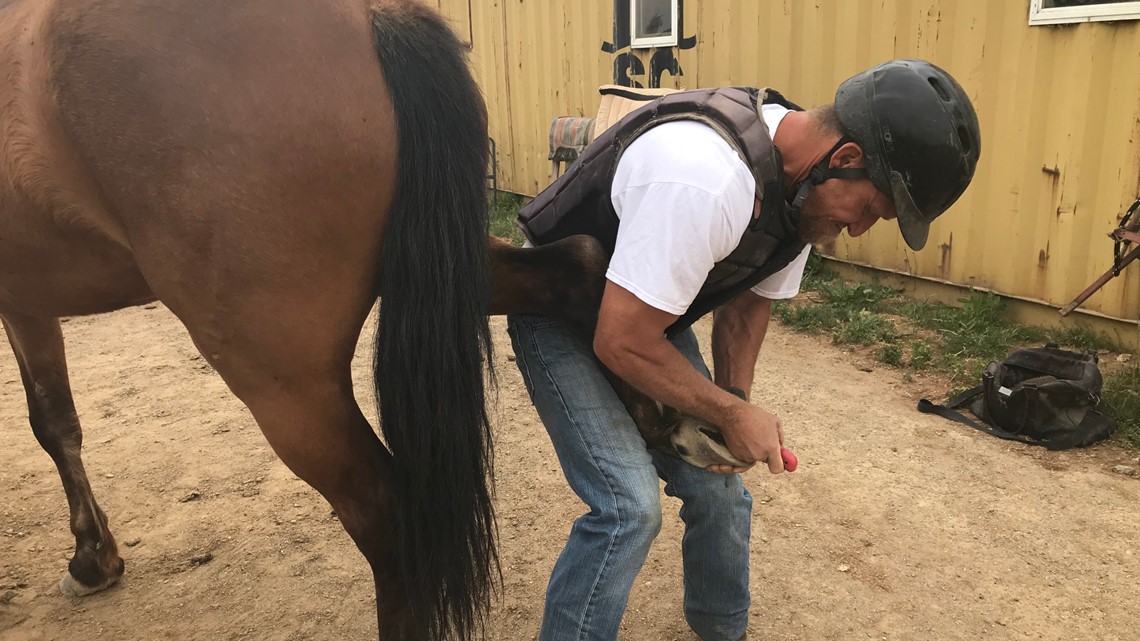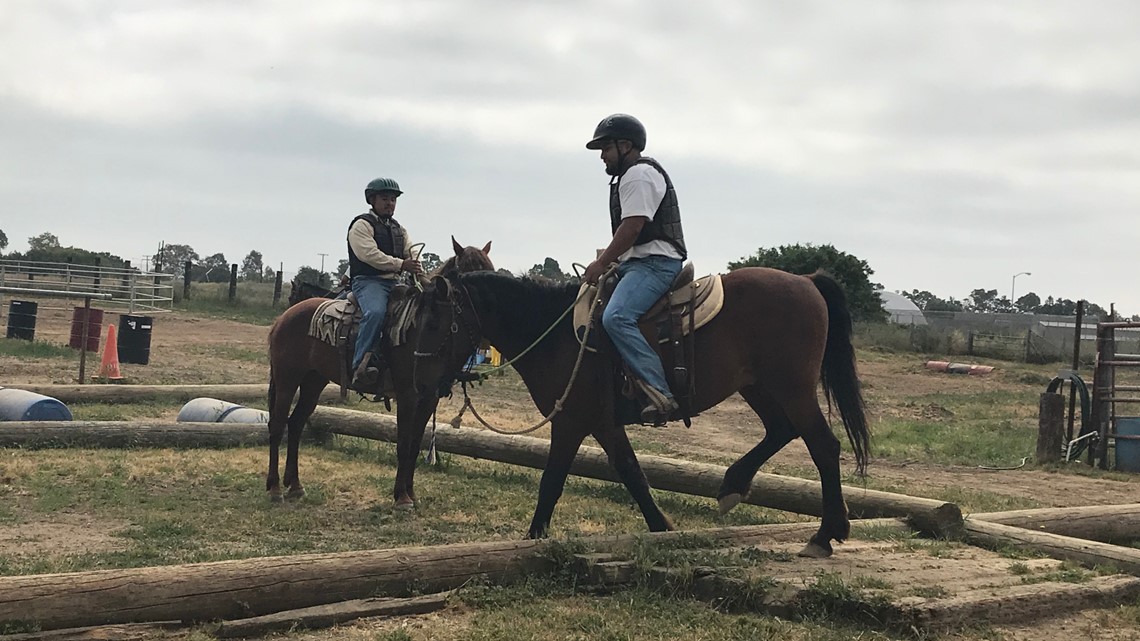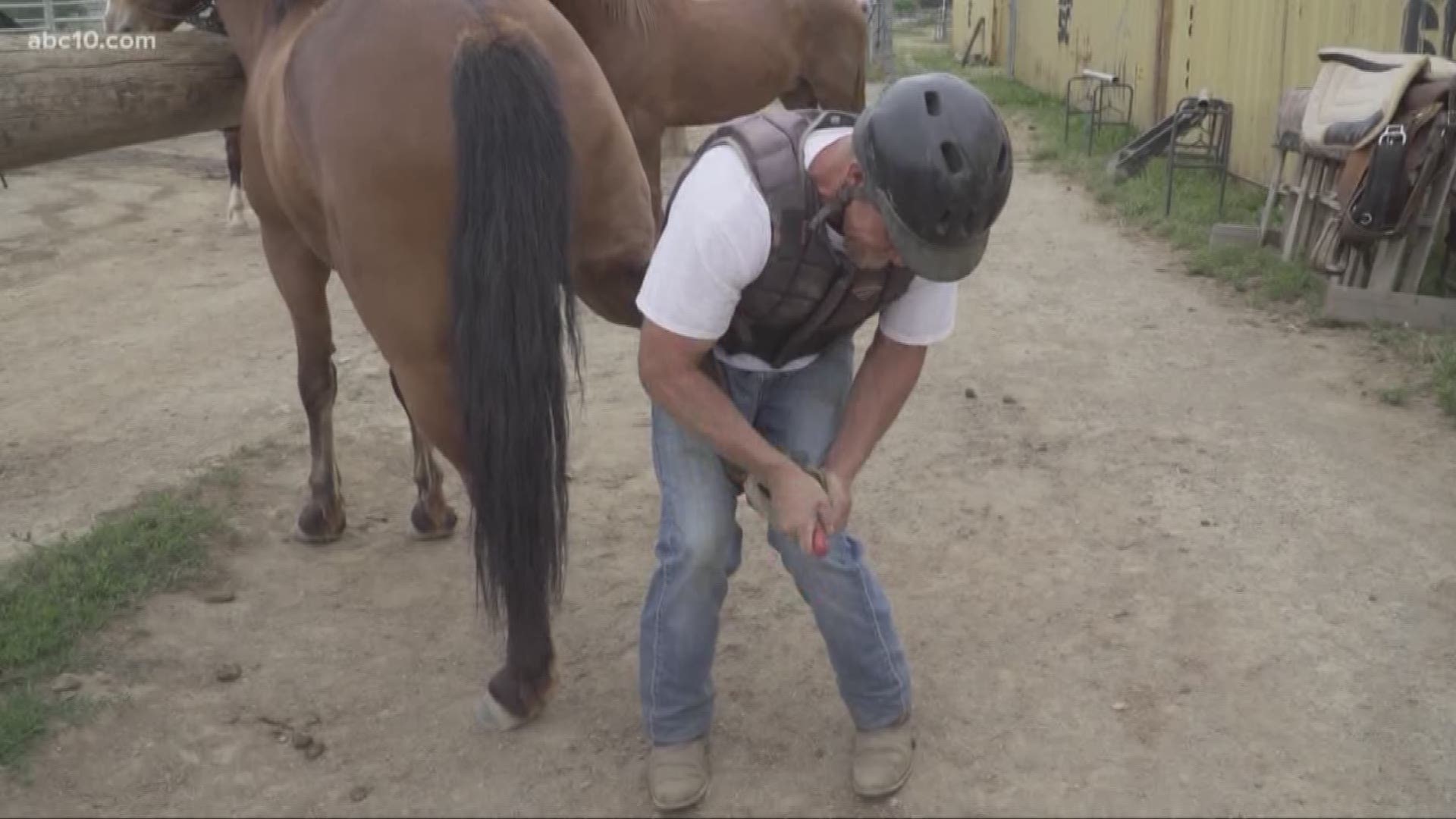ELK GROVE, Calif. — Every day at the break of dawn, nine inmates from the Rio Cosumnes Correctional Center walk out of their cell and into a horse training pin.
These low-level offenders are part of a wild horse training program put together by the Sacramento Sheriff's Department and the Bureau of Land Management.
Bureau of Land Management spokesperson Amy Dumas says in California there are 21 areas where horses run wild, but when those numbers become too populous, or the resources get tapped during a fire or drought, the agency must remove some of the horses and take them to a facility.
Then they put those horses up for adoption. The problem they run into, according to Dumas, is people don’t want to adopt untrained horses.


That is where the Sacramento Sheriff’s Department comes in. The inmates are first trained, and once they get a certain certification they begin to work with the wild mustangs.
Jessie Rodriguez says he’s made mistakes, but this program and working one-on-one with the horses has taught him a lot about himself.
“Being a certain way your entire life and then having to change, it is a hard thing to do. Being wild his whole life and then having to learn how to stop and back up, and him being able to do that, makes me see that I’m able to make those changes too, from being how I was and becoming a better person in society,” said Rodriguez.
Charles Nebel says working with wild horses has changed his perspective in life.
“This was an eyeopener for me. When I first came out here I thought all you did was give horses water and feed it, but I learned there is a lot to it. These horses teach you just as much as you teach them about us. They show us how to have compassion and empathy for others,” Nebel said.
Ranch Manager Joe Misner says the inmates don’t get paid, but do learn technical and life skills that can benefit them later in life.
“This forces them to change because that animal will read you right away, it knows what is in your heart, and if you can’t change you, the horse will help you change, either by dragging you around or bucking you off,” said Misner.


So far, 80 inmates have participated in the program and more than 100 horses have been trained and adopted. Many inmates have gone on to work in the horse training industry.
If you’re interested in a trained wild horse, they will be auctioned off this Sunday at Rancho Murieta. The auction starts at 9 a.m. A second event is planned on May 18 at the Rio Cosumnes Correctional Center. All proceeds go to the Bureau of Land Management and their wild horse program.
Continue the conversation with Mayde on Facebook.

